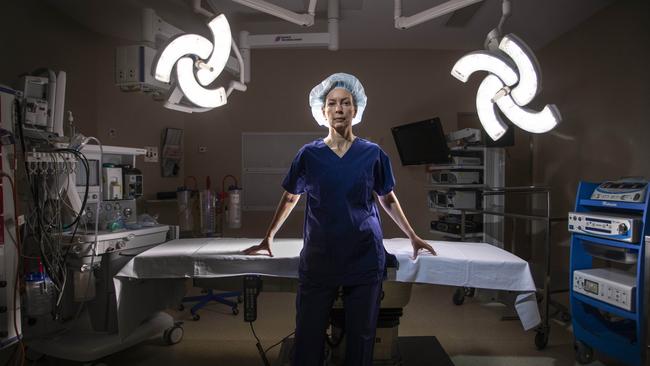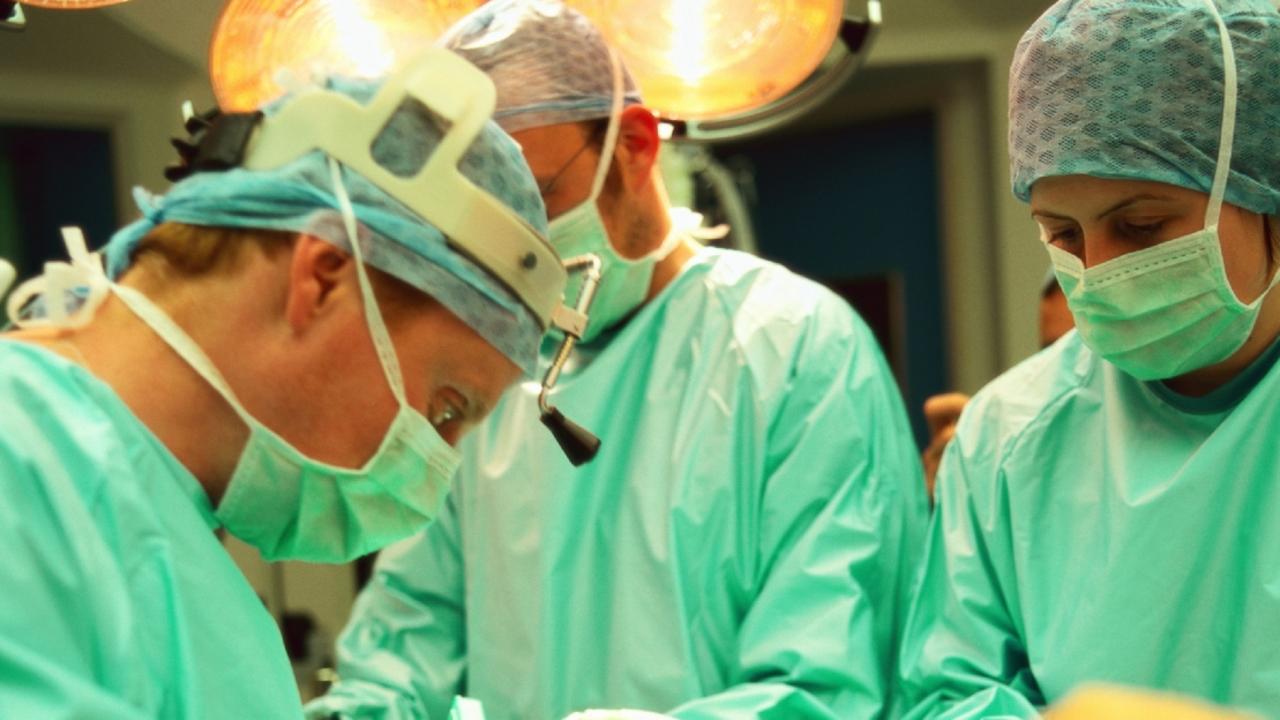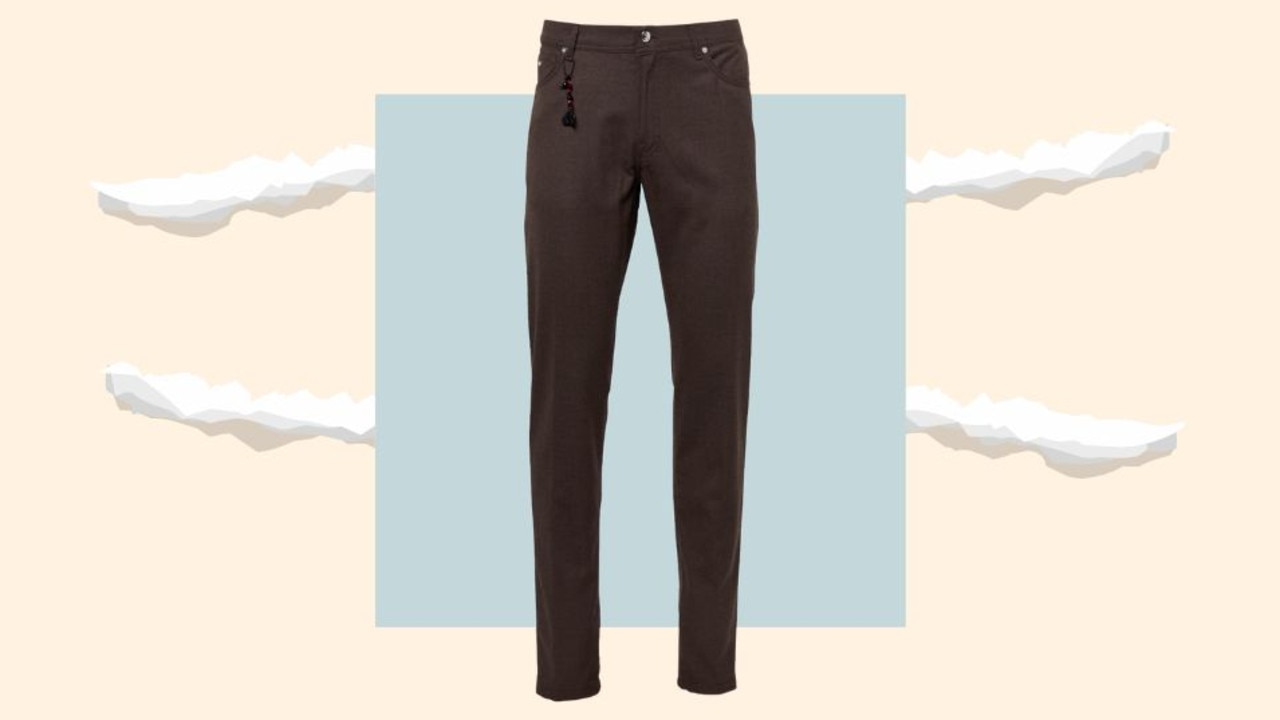Elective surgery bans ‘undermine’ Australia’s health system, says Ramsay boss Craig McNally
The chief executive of Australia’s biggest private hospital group, Ramsay Health Care, has a message for government: “step out” of private health.

Elective surgery bans have “undermined the long-term structure” of Australia’s health system, says the boss of the country’s biggest private hospital group, Ramsay Health Care, setting the stage for fierce funding negotiations with health insurers.
Ramsay has lost at least $155m from the restrictions on elective surgery, which state governments imposed on private health operators to free up doctors and nurses to combat the Omicron outbreak.
But many private hospitals have sat idle, not able to simply deploy staff to the public system as they combat complexities such as access to public theatre space and acute facilities aimed at treating respiratory patients.
Ramsay chief executive Craig McNally said the restrictions on elective surgery were unnecessary, “extreme”, and would hit the company’s full-year earnings as well as limit its ability to treat patients.
“The private sector can adjust quickly to something that happens, rather than having to have everything sitting there under utilised,” Mr McNally said, adding the government should “step out” of private healthcare.
“And so the real losers are the patients who haven’t been able to access services and so their condition deteriorates.
“We are certainly prepared to support the public sector in addressing its own shortcomings, but never at the expense of the private patient and the private sector because that undermined the long term structure of this industry in this country.”
Private hospitals perform about 70 per cent of Australia’s elective surgery — ranging from knee replacements and endoscopy procedures to cancer removal.
The restrictions in Victoria and NSW pushed Ramsay’s net profit down 29 per cent to $158.9m in the six months to December 31.
Mr McNally said Covid “disruptions” — including the elective surgery bans and pandemic isolation rules — had cost the company $107m during the half year and another $48m in January.
Covid costs are set to dominate negotiations between private hospital groups and their funders, the health insurers, which have generated record profits during the pandemic- totalling $1.8bn across the industry last year.
And health insurers have suggested various new funding models. NIB chief executive Mark Fitzgibbon advocated a ‘payer to partner’ model, which would involve paying doctors on hospitals on delivering better clinical outcomes rather than solely on volume. It’s model that’s similar to executive pay where there is a fixed and variable compensation based on meeting certain performance targets.
But Mr McNally dismissed Mr Fitzgibbon’s idea, saying it could potentially deliver worse clinical outcomes.
“I think there is a place for it, but not from a financing perspective. There is a place for that in managing care and looking at quality outcomes, but if you look at what the Australian Quality Commission have said, they‘ve been very clear that linking those initiatives to a funding model is detrimental to care.
“Where when you take on riskier patients, the potential for adverse outcomes are greater and people don’t want to do it, because they won’t get paid.”
Ramsay’s overall revenue firmed 1.2 per cent to $6.69bn. It will pay an interim dividend of 48.5c a share on March 31.
The company’s shares closed 0.2 per cent higher at $64.66 versus a 3 per cent fall across the broader share market.
Across its international operations, Ramsay’s UK division dived into an earnings before interest and tax loss of $35.6m. While its European business delivered an EBIT lift of 3.3 per cent to $239.4m. Across the Asia Pacific, Ramsay’s EBIT fell 5.9 per cent to $284.4m.
Mr McNally did not provide detailed full year guidance but said elective surgery bans in NSW and Victoria from January and February, would hit the company’s second half earnings.
“Our results in 2HFY22 will continue to be impacted by government imposed restrictions on capacity limiting our activity levels, combined with the additional costs of operating in the Covid environment,” he said.
“While surgical restrictions are now starting to ease in most of our regions we expect a transition period where our activities will continue to be disrupted by the impact of cancellations due to the availability of our people, doctors and patients and we incur the higher costs associated with staffing, PPE (personal protective equipment) and procurement.”
Wilsons analysts Shane Storey and Melissa Benson said: “there is little reason to own Ramsay while Covid-related distractions cloud the value proposition which could start again in six months or three years”.
“Ramsay may be due some policy support by the governments of Australia, the UK and France given the extraordinary levels of assistance and profit sacrifice they have tolerated through Covid,” the pair wrote in a note to investors.
“The risk to that outcome is the brevity of political memory – that Ramsay’s contribution is forgotten or negated by a post-Covid recovery measuring in years, by changes of government, by unfavourable shifts in health policy.
Jarden analyst Steve Wheen was more upbeat. “The first half of the 2022 financial year was anticipated to be very weak and now that it is behind us, the market can focus on the recovery barring any new Covid outbreaks”.



